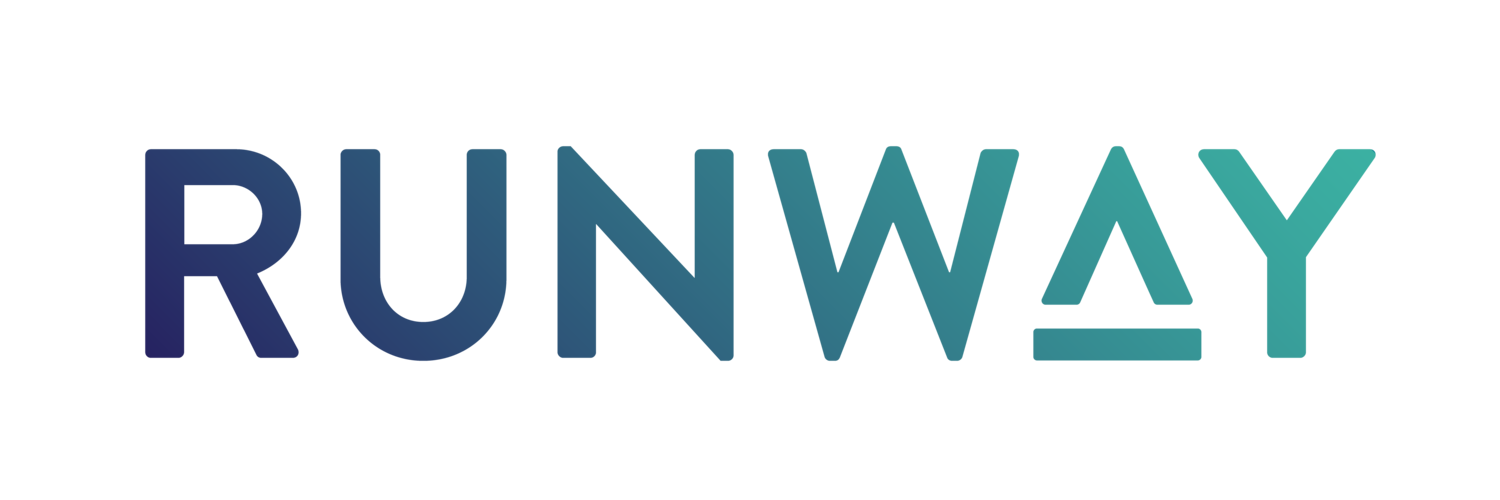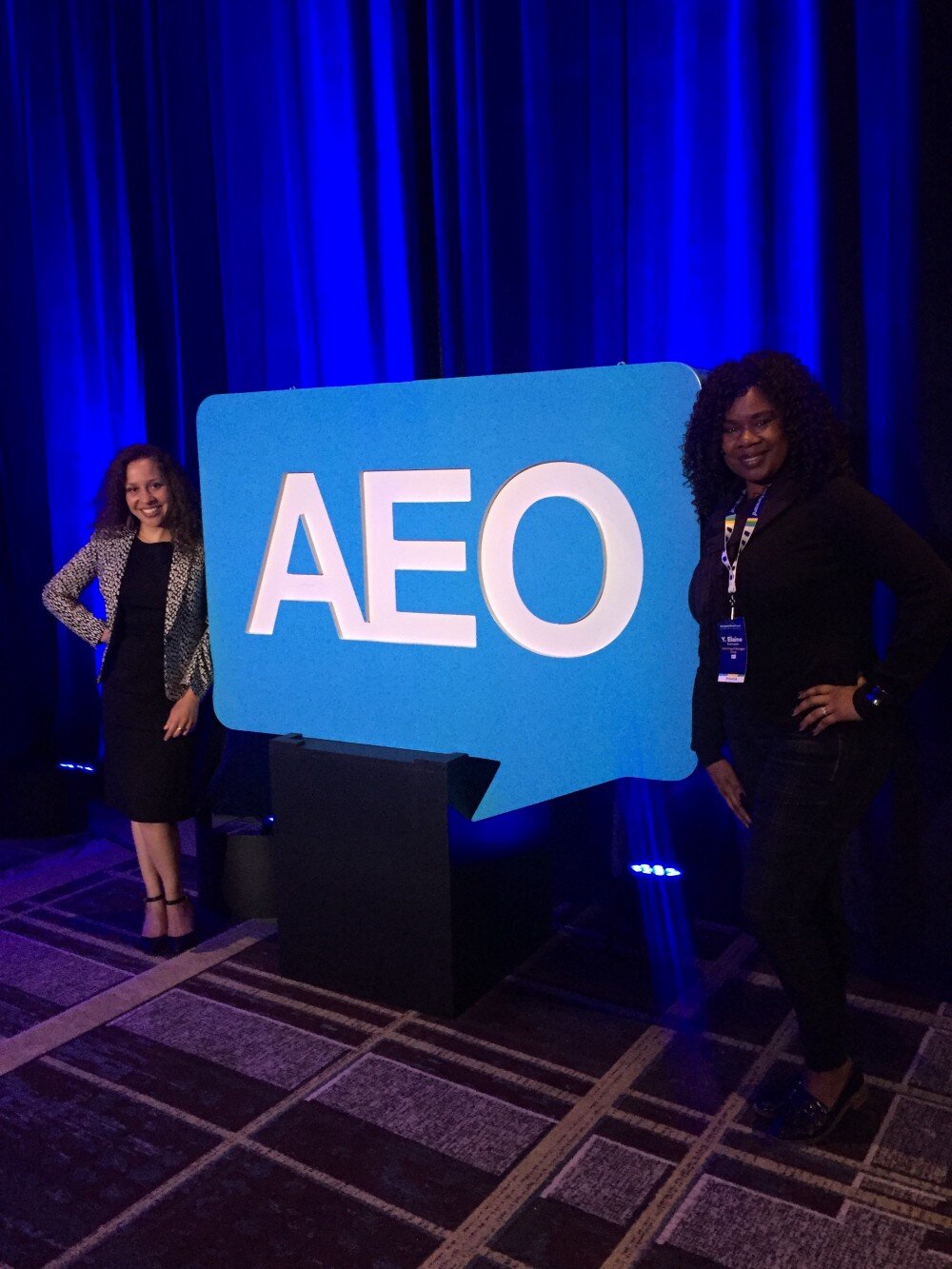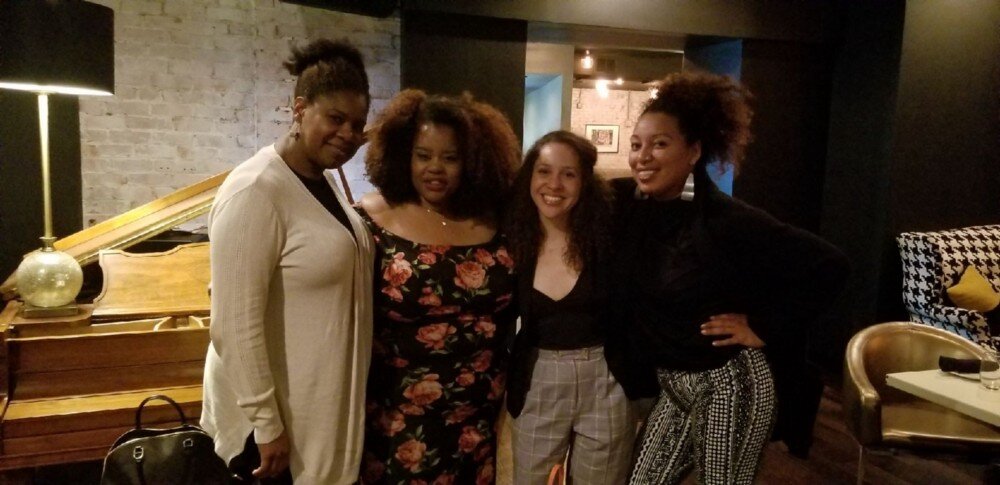Funding Friends and Family: The Importance of Black Investments
Originally published on medium by tiffany brown and kate poole of chordata capital | May 9,2018My friend, Jessica Norwood, invited me to go to Detroit, MI for the Runway Project’s Hip Hop Pitch Contest. She said I needed to “come see how we do!” I’ll pause right here to tell you that it was one of the best events I have ever experienced. Pitches that would normally be presented with slide decks and index cards were delivered in brilliant raps about their product and business plan. The Black entrepreneurs stepped outside of the their comfort zone to artistically present with the help of DJ Nina Sol on the turntables. This allowed the audience to joyfully support, cheer and participate instead of take notes, and judge based on expectations what we should do as the audience at a business pitch contest. We were standing up at times, singing along and smiling. It was incredible.
With Y. Elaine Rasmussen at AEO!
This isn’t a coincidence, it’s the racial wealth divide, and our economic system is all about perpetuating it.
It was important for me to go for a number of reasons. First, when a friend asks you to hop on a plane to check out their event, you need to take it seriously. I’ve known Jessica for over 15 years, and this was a chance to learn about her work with Runway first hand. Jessica, Nina, my business partner Kate Poole and I are all a part of RSF Social Finance’s Integrated Capital Fellowship. Kate Poole & I have an explicit commitment to racial and economic justice so for our line of work this means learning more about the landscape of Black investment opportunities. Jessica’s event was part of a larger conference called AEO (Association of Enterprise Opportunity). AEO’s mission is to create economic opportunity for underserved entrepreneurs by supporting the development of strong and effective initiatives to assist them in starting, stabilizing and expanding businesses. Kate and I realized that I could also meet other people in the field who prioritize the financial support of Black people.
With Y. Elaine Rasmussen at AEO!
Jessica talks a lot about how Black folks don’t have the same kind of “friends and family” capital as white people to launch our own businesses. Nationally, the average Black family has $11,000 in savings (including retirement) compared to $125,000 for white families. This disparity is even more pronounced in Boston (where I currently live), where the numbers are based on a median net financial wealth. The median net financial wealth of a white household is $250,000 compared to $8 for Blacks.
Jessica has launched an investment vehicle (a certificate of deposit, or CD) that is leveraged to invest in Black entrepreneurs. The whole spirit of her work is about friends and family, enabling Black communities to save and have those savings investing in entrepreneurs. It’s about expanding what we think is possible, creating an investment that is both accessible and deeply supportive. The model of Runway Project also includes an accelerator that supports the entrepreneurs in strengthening their businesses before they receive the loan. Serious commitments from the network involved in the accelerator, the CDFI offering the CD (shout out to Self Help Federal Credit Union & Annie McShiras!), and those helping to scale Runway Project are supporting the launch of Runway Projects all across the nation. And this nationwide network is looking at how live into this vision to be friends and family in the work of investments. It makes me realize that we can’t talk about racial and economic justice, without talking about how we support each other, and lift up one another.
Y. Elaine Rasmussen, Jessica Norwood, Me (Tiffany Brown) and Nina Robinson
I want to get into how I am coming at this. My career began in the non-profit sector, organizing events for young leaders. I’d characterize this era as a “people-first” time, where at the core of everything we did, we were thinking about the human condition and its improval. We were also working on how the culture we created as a non-profit exemplified the mission of what we said we were doing. I know that all non-profits aren’t like this.
And I’m not saying that things were perfect, but I appreciated the vision of the internal, the interpersonal and the systemic all needing to be in alignment for impact. There was integrity (most of the time).
Fast-forward 15 years, when I started working in wealth management, the script flipped. In wealth management, we put the wealthy first. Should a client express interest in racial and economic justice, advisors may investigate Community Development Financial Institutions (CDFIs) that have an inkling of these markings in their portfolio of investments. This could be affordable housing developments in urban areas, or schools. The issue was that we would have to ask a few probing questions about the impact, beyond what was presented in the annual report, to get at the angle of how the CDFI was advancing the wellbeing of communities of color. Advisors refer to these investments as products.
Sadly, these debt vehicles, are often not pursued because they aren’t as “liquid” as bonds, meaning that they don’t trade on the public markets. They are also a bit more labor intensive because they require paperwork, signatures from clients, and then a transfer of funds. So they aren’t as automated as quick purchases on the public market. The wealth management industry is about efficiency, scale, and fast money. In wealth management, racial justice and economic justice are not efficient.
What I’m getting at is as I moved into the for-profit, finance sector, the strategy is to invest in “products” that support people of color or women. It’s almost lost in translation that we are talking about people’s lives. This distances us from the intention and the impact.
Jessica Norwood (in gray) presenting on a panel on investing in Black-Owned Businesses at the AEO 2018 National MicroBusiness Conference.
Instead of waving your hands in the air as the CEO of Pro:up shares his vision, you’re looking at a short list of CDFI products. I’m inspired by Jessica’s work.
Being friends and family to one another, is a whole new way for us to think about what’s possible in investments.
Her work blends the spirit of non-profit and for-profit, which makes sense because she has experience in both worlds. The Runway Project is relational, mutually-beneficial (via CDs that support people’s savings and Black entrepreneurs), and is a step towards the self-determination that Black folks have demanded for years and years and years… I’m grateful for Jessica’s work, we need it to succeed, and we also need more Runway Projects and runways to launch Black businesses. When we think about what’s possible, wouldn’t it be dope to look at your portfolio and think of the individuals you are supporting instead of a bunch of corporations you don’t even have a connection to?




